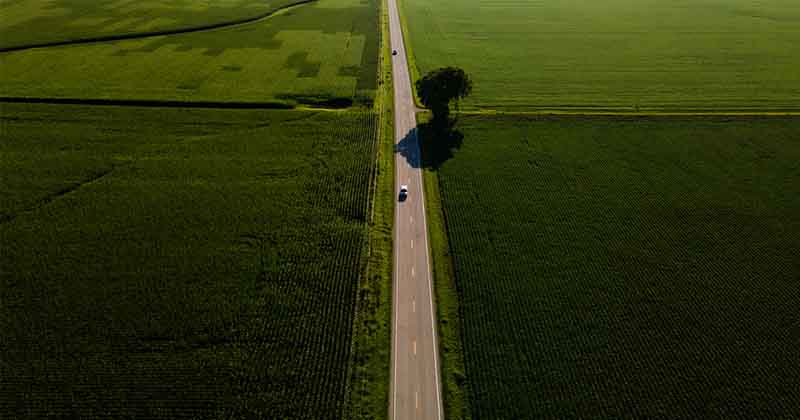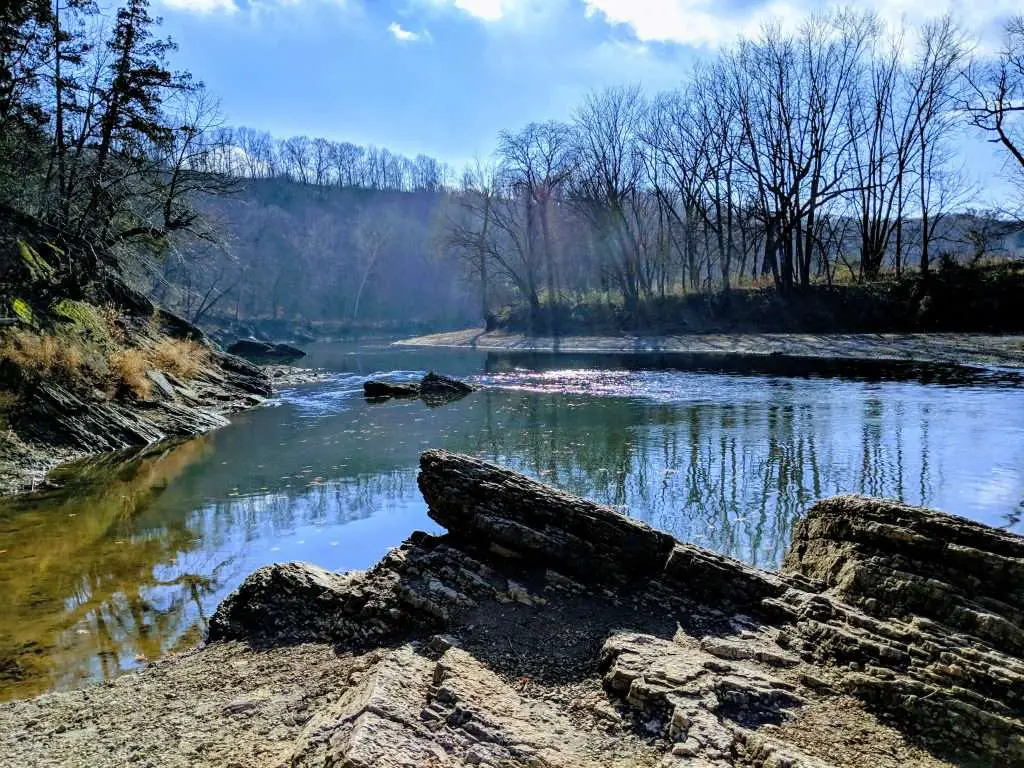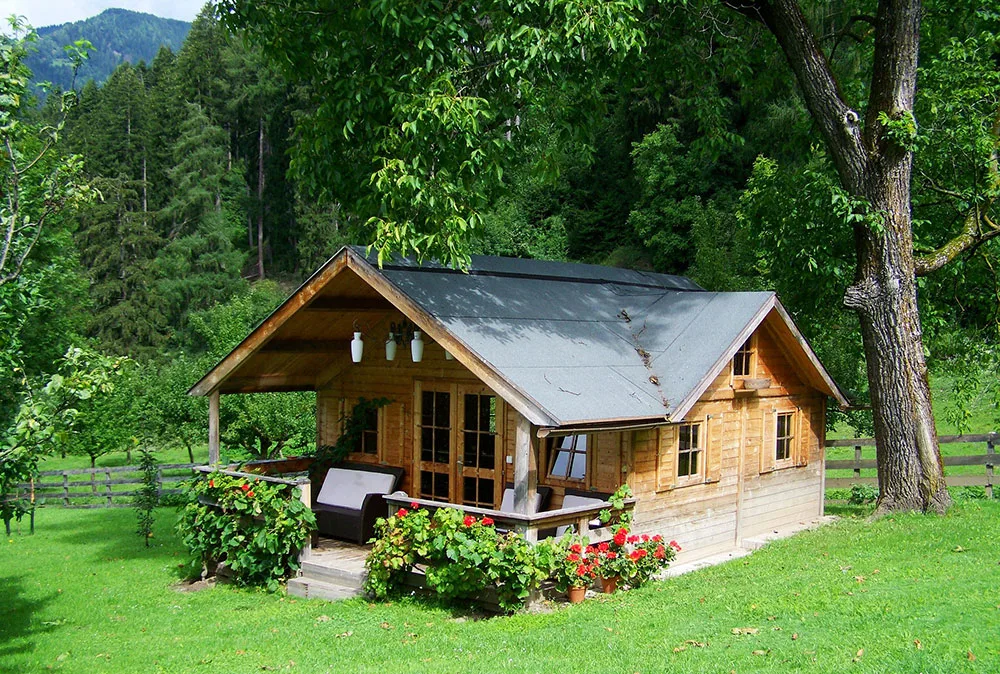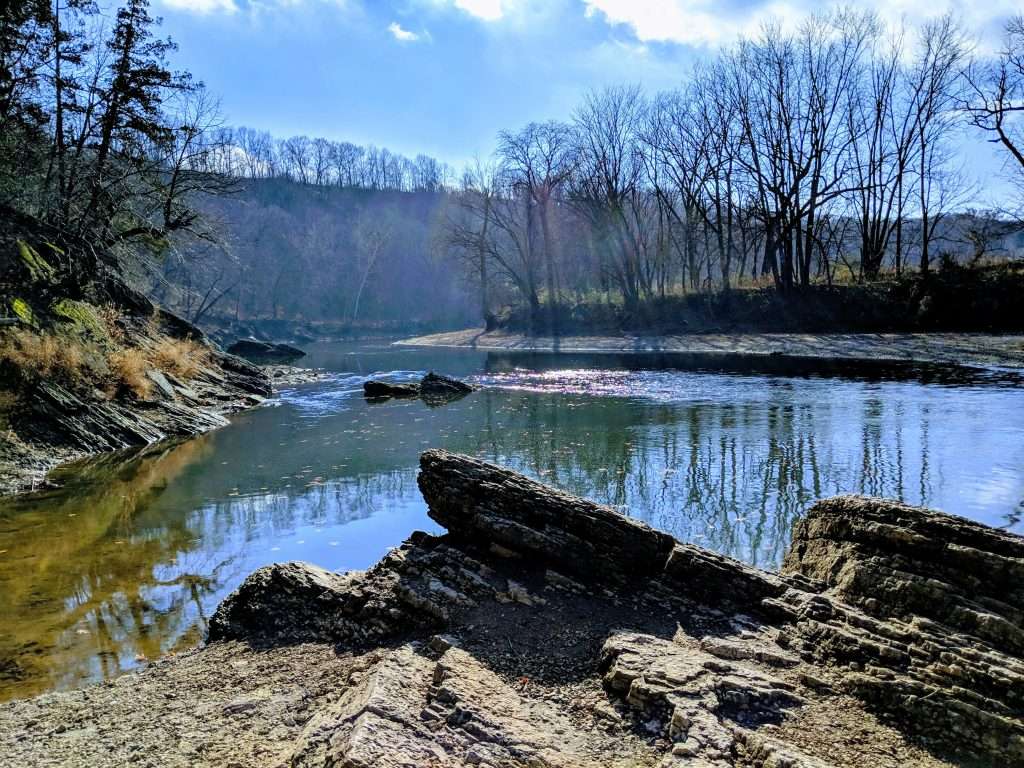If you’re looking to live off-grid in Illinois, you’re in luck! The state has relaxed laws when it comes to building codes, wastewater treatment, and water rights, making it easier to create your own sustainable oasis. Despite Illinois’ high crime rate, there are smaller towns with lower crime rates that provide a safer environment for off-grid living. With a climate characterized by hot summers and cold winters, abundant rainfall and snow, and fertile land for growing crops like corn, soybeans, and wheat, Illinois offers a promising environment for self-sufficiency. Additionally, the state boasts plenty of fresh water sources, diverse wildlife, and viable options for generating off-grid power through solar and wind energy. However, it’s worth noting that property prices can be high, especially in the northern part of the state, and Illinois does have higher property taxes. Nonetheless, with job opportunities available in various sectors and the state’s preparedness for natural disasters, living off-grid in Illinois can be an enticing prospect.

Building Codes
Relaxed building code laws in Illinois
When it comes to living off-grid in Illinois, one of the first things you’ll want to consider is the state’s building code laws. Fortunately, Illinois has relaxed regulations when it comes to building codes, making it easier for individuals looking to live off-grid. These relaxed laws allow for more flexibility in terms of constructing your own sustainable and self-sufficient living space.
Consulting with local officials for regulations
While Illinois has relaxed building code laws overall, it’s important to note that regulations may vary in different counties. To ensure that you are abiding by all relevant regulations, it’s crucial to consult with local officials before beginning any construction. By reaching out to local authorities, you can obtain the necessary permits and ensure that your off-grid living space is in compliance with all applicable building codes.
Tiny houses are legal in Illinois
For those considering living in a tiny house, the good news is that they are legal in Illinois. Even in Cook County, where Chicago is located, tiny houses are permitted. This provides another option for individuals looking to live off-grid, as tiny houses can offer a more cost-effective and sustainable living solution. Just be sure to familiarize yourself with any county-specific regulations regarding tiny houses before starting your project.
Regulations may vary in different counties
While tiny houses are legal in Illinois, it’s important to be aware that regulations may vary in different counties. Some counties may have additional requirements or restrictions when it comes to tiny houses or off-grid living in general. This is why it’s essential to consult with local officials to ensure that you are adhering to all applicable regulations. By doing so, you can avoid any potential legal issues and enjoy your off-grid lifestyle with peace of mind.
Wastewater Treatment
Relaxed laws for wastewater treatment in Illinois
Living off-grid often means finding alternative methods for wastewater treatment. Fortunately, Illinois has relaxed laws when it comes to off-grid wastewater treatment. This allows individuals to explore different options that suit their specific needs and environmental concerns. Whether you choose to implement a composting toilet system, a septic tank, or another wastewater treatment method, you will have the freedom to do so in Illinois.
Options for off-grid wastewater treatment
When it comes to off-grid wastewater treatment, there are several options available to residents of Illinois. Composting toilets, for example, are a popular choice for individuals looking to minimize their environmental impact. These toilets turn waste into nutrient-rich compost, which can then be used to fertilize gardens or other plants. Other options include septic tanks and gray water systems, which help to manage and treat wastewater in an eco-friendly manner.
Consulting with local authorities for regulations
While Illinois has relaxed laws for wastewater treatment, it’s important to consult with local authorities to ensure that you are complying with any specific regulations. This is especially important if you plan to install a septic system or other wastewater treatment method that requires permits or inspections. By working with local officials, you can navigate the regulations and ensure that your wastewater treatment system meets all necessary requirements.

Water Rights
Relaxed laws for water rights in Illinois
When it comes to accessing water for off-grid living in Illinois, the state has relaxed laws regarding water rights. This means that individuals have more freedom when it comes to utilizing and managing water resources on their property. Whether you plan to collect rainwater or utilize other sources of freshwater, you can do so within the parameters of the state’s water rights laws.
Availability of fresh water in Illinois
Illinois is fortunate to have an abundance of freshwater resources. With numerous rivers and lakes throughout the state, there is plenty of fresh water available for off-grid living. This makes Illinois an attractive location for individuals looking to live sustainably and self-sufficiently. By utilizing methods such as rainwater harvesting, residents can take advantage of the state’s water resources and reduce their reliance on external water supplies.
Rainwater harvesting as a viable option
For individuals living off-grid in Illinois, rainwater harvesting is a viable option for accessing freshwater. By collecting rainwater from rooftops and other surfaces, residents can store and utilize this water for various purposes, including drinking, cooking, and irrigation. Rainwater harvesting not only helps to conserve water resources but also reduces the strain on municipal water supplies.
Consulting with local authorities for regulations
While Illinois has relaxed laws regarding water rights, it’s important to consult with local authorities to ensure that you are complying with any specific regulations. Some counties or municipalities may have their own rules or guidelines regarding rainwater harvesting or other methods of accessing freshwater. By engaging with local officials, you can ensure that your water usage is within the legal parameters and sustainable for your off-grid lifestyle.
Climate
Hot summers and cold winters in Illinois
When considering off-grid living in Illinois, it’s crucial to understand the state’s climate. Illinois experiences hot summers and cold winters, with considerable variations in temperature throughout the year. Summers can be quite warm, with temperatures often reaching the 90s and even above 100 degrees Fahrenheit. Winters, on the other hand, can be harsh, with temperatures dropping well below freezing and substantial snowfall.
Frequent rain and snowfall
Illinois also experiences frequent rain and snowfall throughout the year. This precipitation is essential for sustaining crops and ensuring a sufficient water supply for off-grid living. However, it’s important to be prepared for these weather conditions, as heavy rainfall and snowfall can impact daily life and require additional planning for off-grid systems such as water collection and power generation.
Suitability of crops for off-grid living in Illinois
The climate in Illinois makes it suitable for growing a variety of crops, which is advantageous for individuals living off-grid. Common crops in the state include corn, soybeans, wheat, rye, and oats. These crops can provide a sustainable source of food and income for those seeking self-sufficiency. Additionally, the southern part of the state, with its milder climate, offers even more options for crops suitable for off-grid living.
Crops
Corn, soybeans, wheat, rye, and oats in Illinois
Illinois is known for its fertile soil and agricultural productivity. The state is a major producer of crops such as corn, soybeans, wheat, rye, and oats. These crops not only contribute to the state’s economy but also provide ample opportunities for off-grid living. By cultivating and harvesting these crops, individuals can establish a sustainable food source and potentially generate income through selling surplus produce.
Crops suitable for off-grid living in southern Illinois
While crops like corn and soybeans are prevalent throughout Illinois, the southern part of the state offers even more options for off-grid living. The milder climate in this region allows for the cultivation of a wider variety of crops, including fruits and vegetables that may not thrive in more northern areas. By choosing crops that are suitable for the local climate, off-grid residents in southern Illinois can enhance their self-sufficiency and enjoy a diverse range of fresh produce.
Freshwater Availability
Numerous rivers and lakes in Illinois
Illinois is rich in freshwater resources, with numerous rivers and lakes scattered throughout the state. The Mississippi River, Illinois River, and Lake Michigan are just a few prominent bodies of water that contribute to the overall availability of fresh water in the region. These water sources not only provide opportunities for recreational activities but also serve as important sources of freshwater for off-grid living.
Suitability of rainwater harvesting in Illinois
With its frequent rainfall, Illinois is highly suitable for rainwater harvesting. By collecting rainwater from roofs and other surfaces, individuals can store and utilize this valuable resource for various purposes, such as watering plants, flushing toilets, and even drinking. Rainwater harvesting not only reduces the strain on municipal water supplies but also allows off-grid residents to be more self-reliant and sustainable in their water usage.
Abundant fresh water for off-grid living
Thanks to the numerous rivers, lakes, and the suitability of rainwater harvesting, Illinois offers an abundant supply of fresh water for off-grid living. This is an essential consideration for individuals seeking self-sufficiency and sustainability in their lifestyle. With the availability of ample freshwater resources, off-grid residents can confidently manage their water needs while minimizing their impact on the environment.

Wildlife
Diverse wildlife population in Illinois
Illinois is home to a diverse wildlife population, making it a paradise for nature enthusiasts and off-grid residents. From majestic white-tailed deer to elusive wild turkeys, the state offers a wide range of wildlife species to observe and appreciate. This diverse ecosystem provides a unique opportunity for individuals to connect with nature and enjoy the peaceful and serene surroundings of off-grid living.
Opportunities for fishing enthusiasts
For those who enjoy fishing, Illinois offers ample opportunities to indulge in this outdoor activity. The state’s rivers and lakes are teeming with various fish species, providing anglers with a chance to reel in their catches. Whether you prefer fly fishing, freshwater fishing, or ice fishing during the winter months, Illinois has something to offer for every fishing enthusiast.
Abundance of white-tailed deer, wild turkeys, and rabbits
Among the many wildlife species in Illinois, white-tailed deer, wild turkeys, and rabbits are particularly abundant. These animals not only add to the natural beauty of the state but also provide potential opportunities for hunting and foraging. For individuals living off-grid, these animals can serve as a sustainable source of food, further enhancing their self-sufficiency and connection to the land.
Off-Grid Power
Viable options for off-grid power in Illinois
When it comes to generating off-grid power in Illinois, residents have several viable options to choose from. One of the most popular options is solar power. With its ample sunlight, Illinois provides favorable conditions for harnessing solar energy. Installing solar panels on your property can allow you to generate clean and renewable energy, reducing your reliance on the traditional power grid.
Solar power
Solar power is a reliable and sustainable form of off-grid power in Illinois. By harnessing energy from the sun through solar panels, residents can generate electricity for their daily needs. Solar power is particularly advantageous in Illinois, as the state receives a significant amount of sunlight throughout the year. This allows for consistent and efficient solar energy production, even during the colder winter months.
Wind power
Another viable option for off-grid power in Illinois is wind power. The state’s flat terrain and frequent wind gusts make it a suitable location for wind energy generation. Installing wind turbines on your property can harness the power of the wind and convert it into electricity. This renewable energy source provides yet another opportunity for off-grid residents to reduce their reliance on traditional power sources and embrace a more sustainable lifestyle.

Property Prices
Illinois’ property prices, particularly in the northern part
When considering off-grid living in Illinois, it’s important to weigh the costs associated with purchasing property. Property prices, particularly in the northern part of the state, can be relatively high compared to other regions. This higher cost of land and property ownership may be a factor for individuals looking to live off-grid, as it can impact the overall affordability of their self-sufficient lifestyle.
Property taxes in Illinois
In addition to property prices, it’s also important to consider property taxes when planning for off-grid living in Illinois. The state has higher property tax rates compared to the national average. This means that off-grid residents will need to budget for these ongoing expenses in order to maintain their property and comply with local tax regulations.
Overall cheaper cost of living
Despite the higher property prices and property taxes, Illinois still offers an overall cheaper cost of living compared to the national average. This can be attributed to various factors, including the relatively low cost of utilities, transportation, and healthcare in the state. When considering the expenses associated with off-grid living, it’s important to take into account the overall cost of living in Illinois, which may make it a more financially viable option for those seeking a self-sufficient lifestyle.
Cheapest Place to Live Off-Grid
Cost considerations in off-grid living
When determining the cheapest place to live off-grid, there are several cost considerations to take into account. These include the cost of land or property, property taxes, utility costs, and the availability of resources such as water and food. By evaluating these factors, individuals can identify locations that offer the most affordable options for off-grid living.
New Mexico as the cheapest place
According to various studies and analyses, New Mexico is often regarded as the cheapest place to live off-grid in the United States. The state offers relatively low land and property costs, making it more affordable for individuals looking to establish their off-grid lifestyle. Additionally, New Mexico’s favorable climate and abundant sunshine make it an ideal location for renewable energy generation, further reducing the cost of living off-grid.
Factors affecting affordability
While New Mexico may be considered the cheapest place to live off-grid, it’s important to note that affordability can vary depending on individual circumstances and preferences. Factors such as access to amenities, proximity to services, and personal lifestyle choices can impact the overall cost of living off-grid. Therefore, it’s crucial for individuals to thoroughly evaluate their specific needs and conduct research on various locations before making a decision. Ultimately, finding the most affordable place to live off-grid requires careful consideration and a comprehensive understanding of the costs involved.




